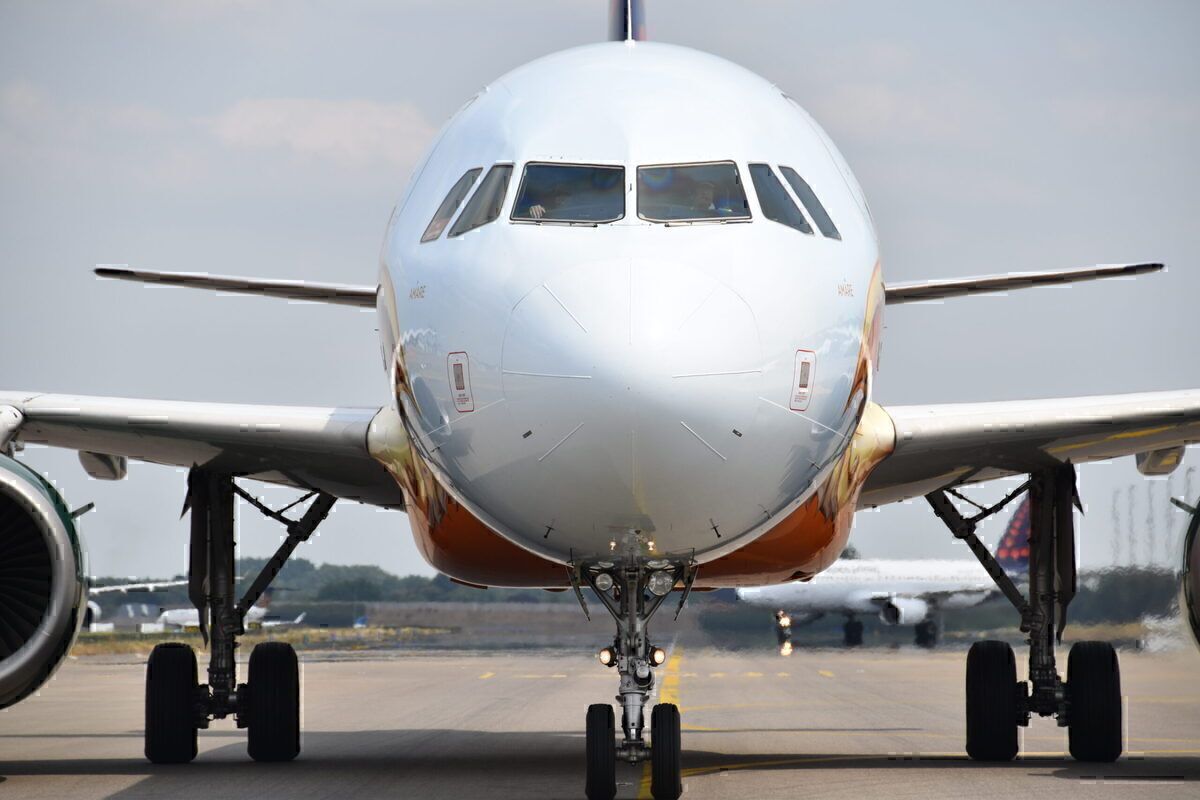Airbus's Tariff Decision Impacts US Airlines

Table of Contents
Financial Burden on US Airlines
The direct impact of Airbus tariffs is a substantial increase in the cost of acquiring new aircraft. This "Airbus tariff impact" translates directly into higher aircraft pricing, significantly affecting airline budgets. The added expense directly eats into airline profitability, forcing airlines to re-evaluate their investment strategies. This could lead to a domino effect, potentially impacting other areas of airline operations and investment.
- Increased aircraft acquisition costs: The tariffs represent a considerable percentage increase on the sticker price of Airbus aircraft, making them significantly less attractive compared to Boeing alternatives.
- Reduced profit margins: Higher acquisition costs inevitably translate into lower profit margins, squeezing already tight airline budgets.
- Potential delays or cancellations of new aircraft orders: Faced with increased costs, airlines may postpone or cancel orders for new Airbus aircraft, impacting both Airbus and the airlines themselves.
- Impact on airline stock prices: The financial uncertainty created by these tariffs can negatively influence investor confidence, leading to potential drops in airline stock prices. This instability directly reflects the gravity of the Airbus tariff impact on airline financials.
Impact on Route Planning and Expansion
The increased cost of Airbus aircraft directly influences airlines' strategic route planning and expansion capabilities. Airlines are forced to reconsider their fleet modernization and expansion plans, potentially limiting growth and hindering competition. The "Airbus tariff impact" on route planning is particularly significant for airlines heavily reliant on Airbus aircraft for their fleet.
- Reduced capacity for new routes: The higher cost of acquiring new aircraft might limit an airline's ability to expand its network and launch new routes, especially to less-traveled destinations.
- Delayed fleet modernization: Airlines might postpone upgrading their fleets with newer, more fuel-efficient Airbus aircraft due to the increased cost, potentially leading to higher operational expenses in the long run.
- Potential for service cuts on less profitable routes: To offset increased costs, airlines might consider reducing service on less profitable routes, limiting consumer choice and potentially impacting smaller communities.
- Impact on competition within the US airline industry: The financial strain imposed by Airbus tariffs could disproportionately affect certain airlines, potentially leading to shifts in the competitive landscape of the US airline industry.
Consumer Implications: Higher Ticket Prices and Reduced Choices
The financial burden on US airlines due to Airbus tariffs is likely to be passed on to consumers in the form of higher airfare prices. This "Airbus tariff impact" on airfare directly affects consumers and their ability to travel by air. Furthermore, reduced competition and fewer flight options could also result.
- Increased airfare prices for consumers: Higher operating costs due to the tariffs will likely lead to increased airfare prices across various routes.
- Reduced availability of flights on certain routes: Airlines might reduce or eliminate flights on less profitable routes, leading to fewer flight options for consumers.
- Potential negative impact on air travel demand: Higher airfares could dampen air travel demand, especially for price-sensitive travelers, affecting the overall travel industry.
- Impact on the overall economy related to reduced air travel: Reduced air travel due to higher prices can have broader economic ramifications, impacting tourism and related industries.
Strategic Responses from US Airlines
Faced with the challenges posed by Airbus tariffs, US airlines are exploring various strategic responses. These range from negotiations with Airbus to exploring alternative aircraft manufacturers and implementing cost-cutting measures. Understanding these "airline strategies" is crucial for navigating the long-term effects of the tariffs.
- Negotiating with Airbus for better pricing or tariff exemptions: Airlines might attempt to negotiate lower prices or exemptions from the tariffs with Airbus, though the success of these efforts remains uncertain.
- Increased reliance on Boeing aircraft: Airlines might shift towards procuring more Boeing aircraft, which are not subject to the same tariffs.
- Cost-cutting measures within the airline operations: Airlines might implement various cost-cutting measures to offset the increased aircraft acquisition costs.
- Adjustments to route strategies and fleet plans: Airlines might need to adjust their route strategies and fleet plans to accommodate the financial constraints imposed by the tariffs.
Conclusion: The Lasting Effects of Airbus Tariffs on US Airlines
The Airbus tariffs have imposed a significant financial and operational burden on US airlines. The increased cost of Airbus aircraft directly impacts profitability, route planning, and ultimately, consumer airfare. The long-term implications of these tariffs on the US airline industry and the broader economy remain to be seen, but the impact is undeniable. To stay informed about the ongoing trade dispute and its effects on the US airline industry, continue researching the "Airbus tariff implications" and their impact on the future of air travel. Understanding the complexities of these Airbus tariff implications is vital for navigating the evolving landscape of the US airline industry.

Featured Posts
-
 Nebraskas Successful Voter Id Campaign A National Clearinghouse Award Winner
May 03, 2025
Nebraskas Successful Voter Id Campaign A National Clearinghouse Award Winner
May 03, 2025 -
 Kocaelide 1 Mayis Kutlamalarinda Meydana Gelen Arbede
May 03, 2025
Kocaelide 1 Mayis Kutlamalarinda Meydana Gelen Arbede
May 03, 2025 -
 All Fortnite Tmnt Skins A Complete Guide To Obtaining Them
May 03, 2025
All Fortnite Tmnt Skins A Complete Guide To Obtaining Them
May 03, 2025 -
 Lotto 6aus49 19 April 2025 Ergebnisse Der Aktuellen Ziehung
May 03, 2025
Lotto 6aus49 19 April 2025 Ergebnisse Der Aktuellen Ziehung
May 03, 2025 -
 Tv Show Host Forced To Improvise After Presenters Sudden Withdrawal
May 03, 2025
Tv Show Host Forced To Improvise After Presenters Sudden Withdrawal
May 03, 2025
